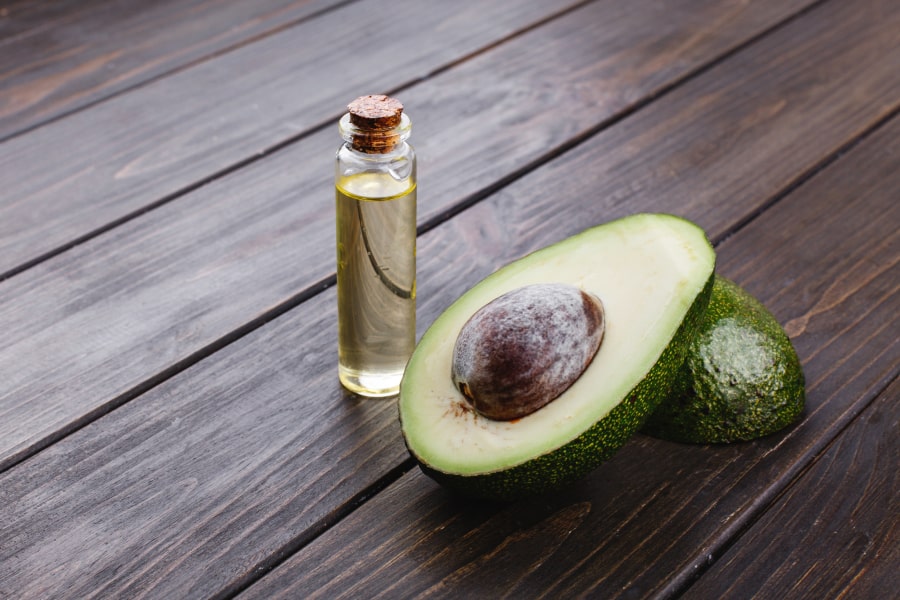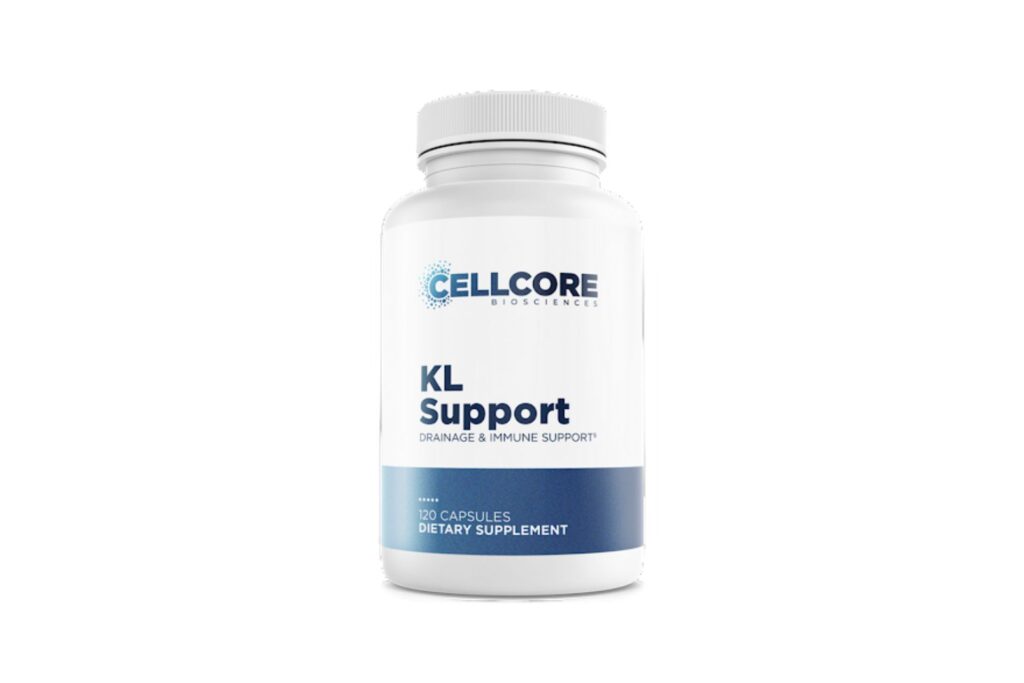When it comes to cooking, choosing the right oil is essential. This article will compare avocado oil vs olive oil to decide which is better for high-temperature cooking without being carcinogenic. We’ll look at health benefits, smoke points, and taste profiles to determine which is suitable for different recipes. Avocado oil is becoming increasingly popular as a healthy cooking alternative, but does it stack up against its longstanding rival – olive oil?
What is avocado oil?
Avocado oil is a cooking oil made by extracting the fat from the avocado fruit’s pulp. This distinguishes it from other plant-based oils, most of which are derived from the plant’s seeds rather than the fruit. Although avocado oil is derived from fruit, usually Hass or Persea Americana varieties, it is considered a vegetable oil.
The avocado fruit’s oil is extracted to make avocado oil. It is a well-liked cooking oil due to its mild flavor and high smoke point, but you may also eat it raw. Olive oil and avocado oil are comparable in terms of their uses and nutritional benefits. Cold-pressed avocado oil is unrefined and, like extra virgin olive oil, preserves part of the flavor and color of the fruit, making it seem green.
The benefits of avocado oil
Promote heart health and lower cholesterol.
Vitamin E, which is quickly absorbed and vital for the health of your cells, is abundant in avocado oil. Its anti-inflammatory properties aid in preventing plaque build-up on artery walls, lowering the risk of heart disease.
It contains a healthy fat called oleic acid.
Heart-healthy oleic acid, an omega-9 monounsaturated fatty acid, makes up about 70% of avocado oil. Most evidence indicates that eating a diet high in unsaturated fats is healthy and may lower the chance of developing chronic illnesses like heart disease and dementia.
Rich in lutein, a beneficial antioxidant for the eyes.
Research has shown that a diet rich in lutein and another carotenoid called zeaxanthin is essential for eye health and may reduce the risk of cataracts and macular degeneration, which are common age-related eye diseases.
It may lessen arthritic symptoms.
Researchers have reported that avocado/soybean unsaponifiable, the combination of the oils’ extracts, can reduce the pain associated with osteoarthritis in the hips and knees.
Promotes skin health and wound healing.
The fatty acids and nutrients in avocado oil are suitable for your skin. It is a good source of vitamins A and E, essential to skin membranes’ health. Avocado oil’s anti-inflammatory and antioxidant properties aid in maintaining the strength, elasticity, and smoothness of your skin.
Avocado oil may also aid in wound healing. It contains linoleic acid, oleic acid, and other monosaturated fatty acids that help wounds heal faster.
It makes it easier for vital nutrients to be absorbed.
The fat-soluble vitamins A, D, E, and K must be paired with fat for your body to absorb. Without fat, absorbing carotenoids, including beta-carotene, lycopene, lutein, and zeaxanthin, is challenging. If you include avocado oil or another type of fat in your diet, you can absorb these nutrients more effectively.
Packed with antioxidants.
Carotenoids, tocopherols, and plant sterols are among the disease-fighting free radicals abundant in avocado oil. Avocado oil and other foods high in antioxidants can help lower your chance of developing chronic diseases.
The debate between avocado oil vs olive oil is heating up, but which one offers the most nutritional benefits for your health?
What is olive oil?
Olives are a common tree crop in the Mediterranean Basin and are used to make olive oil, a liquid fat derived by pressing the olives’ whole fruit (Olea europaea; family Oleaceae).
Olives were first cultivated in what are now Iran, Syria, and Palestine 6,000 years ago before they made their way to the Mediterranean with their well-known olive groves. Olive oil has a long history of use in religious rituals and medicine and is now a staple dietary ingredient in many cultures.
Oils from olives can be refined or unrefined depending on the processing technique. Since the extraction process uses no heat or chemicals, crude oils are natural, resulting in a stronger-tasting, purer oil.
Refined oils are usually lighter in color and have a milder flavor since they have been processed to remove impurities.
Benefits of olive oil
Promote heart health
Olive oil consumption is linked to decrease LDL (bad cholesterol) cholesterol levels. Polyphenols are abundant in olive oil, and these aid in lowering blood pressure. Patients with hypertension can benefit from it.
Immune and Cancer-Fighting Benefits
Olive oil contain polyphenols, which are effective antioxidants. The risk of cancers of the intestine, breast, colon, endometrial, prostate, etc., is significantly decreased by consuming olive oil.
Aids in Weight Loss
Monounsaturated fat-rich olive oil contains oleic acid. In addition to being beneficial for our hearts, monounsaturated fatty acids also aid in preserving healthy blood sugar levels.
Olive oil also promotes the feeling of satiety or fullness, which causes us to eat less food and consume fewer calories. Weight loss results from this.
Anti-aging
You may also slow the aging process by adding your intake of olive oil. EVOO contains many antioxidants. Secoiridoid, one of the antioxidants, aids in activating genes that reduce cellular stress and has anti-aging properties.
Supports a healthy mood
Olive oil has neuroprotective properties, and it efficiently lessens anxiety and depression. Fatty acids are essential for your brain’s daily function, including maintaining a stable mood, thinking, remembering, and executing cognitive activities.
Relieves pain
Olive oil’s oleocanthal has anti-inflammatory properties. As a result, it successfully reduces inflammation, swelling, and spasms, thereby relieving pain.
Patients with osteoarthritis who rub olive oil on their knees experience pain relief.
Benefits for the skin
- Efficiently hydrates and moisturizes our skin
- Provides effective exfoliation
- Useful for removing makeup
- Prevents the emergence of wrinkles and fine lines
- Aids in fading stretch marks and scars
- Acne prevention
- Assists in repairing cracked heels
Benefits for the hair
- Olive oil moisturizes our scalp, which also lessens itchiness and dryness.
- Prevents and minimizes dandruff
- Makes our hair glossy and healthy
- Prevents and reduces hair loss/hair fall
- Promotes hair growth

What is the smoke point of avocado oil and olive oil?
The smoke point is the temperature at which an oil begins to break down and release potentially harmful free radicals.
Avocado oil has a higher smoke point than olive oil, meaning it does not burn or smoke as quickly. The unrefined avocado oil has a smoke point of about 480°F, while extra-virgin olive oil hovers around 350°F.
Olive oil is best utilized in raw applications, such as salad dressing or low-temperature cooking (like baking, oil poaching, and slow roasting). Avocado oil can handle moderate-to-high-temperature cooking but should not be used for ultrahigh temps (no stir-frying or deep frying).
Compared to olive oil, which can smoke and burn at 375°F (191°C), avocado oil has a smoke point greater than 482°F (250°C).
It is preferable to use avocado oil for high-temperature cooking methods, including sautéing, grilling, searing, and baking.
Avocado oil vs Olive oil: Pros &
AVOCADO OIL
| PROS | CONS |
| Avocado oil is high in monounsaturated fats, which can help lower cholesterol. | Avocado oil can be expensive compared to other cooking oils. |
| It has a high smoke point, making it suitable for cooking at higher temperatures. | Some people may be allergic to avocado oil. |
| Avocado oil contains antioxidants that may help protect against oxidative stress and damage. | It has a strong flavor that only some enjoy when cooking recipes or products such as salad dressings or dips. |
| It is rich in compounds such as vitamins E and K, which are beneficial for skin and hair health. | The shelf life of avocado oil is shorter than other oils due to its polyunsaturated fat content, so it should be stored and used quickly after opening the bottle/container.
|
What is the difference in taste between avocado oil and olive oil?
Avocado and olive oils have distinct tastes that make them suitable for different dishes. Avocado oil is slightly grassy and mild, lacking the signature bite for which extra-virgin olive oil is known. Olive oil’s more robust flavor is typically associated with savory foods like meats and veggies. Both oils can be used in all ethnic dishes since they have almost no taste.
When used in cooking, avocado oil may be more versatile than olive oil since it doesn’t impart much flavor to the food it’s used in. However, extra-virgin olive oil contains a potent polyphenol antioxidant called oleocanthal which gives it “that slight taste you notice in high-quality, extra virgin olive oils.” This makes it better suited for dishes with garlic, lemon juice, and herbs found in Mediterranean cuisines, such as oregano, thyme, and parsley.
The biggest difference between avocado oil vs olive oil is their extraction process. Avocado oil is usually expeller-pressed, while olive oil can be cold-pressed or processed with chemicals.
The Final Verdict: Avocado Oil vs Olive Oil
Both avocado oil and olive oil offer unique health benefits and are versatile in cooking. Avocado oil is high in monounsaturated fatty acids and vitamin E, while olive oil is rich in polyphenols and monounsaturated fats. When choosing between the two, consider your personal health goals and preferences. If you are looking for cooking oil with a higher smoke point, avocado oil may be the better option. On the other hand, if you are looking for an oil with a strong flavor and more polyphenols, olive oil may be the way to go.
Ultimately, both avocado oil and olive oil are nutritious choices, and incorporating either into your diet can contribute to overall health. Avocado oil vs olive oil, which oil has gained your heart & health’s approval? Consult a healthcare provider before changing your diet or lifestyle is always a good idea.













Leave a Reply
You must be logged in to post a comment.